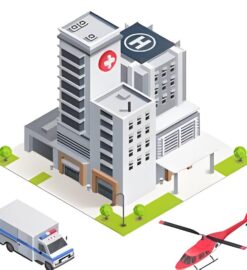Why do Young People Resort to Underage Drinking and How to Deal With it?

Excessive alcohol consumption can lead to long term health problems. Although, the legal drinking age in the US is 21 years, about 11% of alcohol consumption is occurring in people aged between 12 to 20 years. This phenomenon called underage drinking can be harmful and may result in mental and physical issues during the latter part of life.
Many studies can vouch for the fact that binge drinking between the ages 18 and 20 years is found to be most common. If you or your loved one is struggling with substance abuse, you can get help by contacting Genesis Recovery, one of the rehabilitation centers providing alcoholism treatment in La Mesa. They are a non-profit organization, aiming at bringing the addict’s life back on track adopting faith-based therapeutic treatments.
Let’s have a look at many reasons why young people today are resorting to alcoholism:
- Having alcohol can be a rite to passage for many
- During adolescence, they want to assert their freedom and independence
- Getting influenced by someone else drinking, for instance their parents or family members; it could also be a result of peer pressure
- In order to “fit-in” and be considered as cool in college
- Choosing alcohol as a coping mechanism for stress
Underage drinking can have some dangerous consequences. Some of them are listed below:
- Alterations in the growth of bones
- Drowning, falls or car accidents
- Getting arrested or getting into other legal trouble
- Committing a violent crime or being a victim of it
- Issues in brain development
- Getting involved in sexual assault
- Vulnerable to multiple substance abuse
- At risk to develop mental health issues
- Can attempt to commit suicide
- At risk of diagnosing with STI (Sexually Transmitted Infections)
- Facing unwanted pregnancy
- Getting into property damage or vandalism
- Excessive Alcohol can lead to a terminal health condition or even death
Signs to recognize if the child is into drinking:
- Children aged 3 to 10 years are more likely to be involved in drinking if they have an impulsive, aggressive or restless behavior
- The child’s family background and lifestyle decide the degree of risk of underage drinking. Negligible monitoring and support by parents may also be huge factors.
- Genes also play a vital role in predicting whether the child will be inclined to underage drinking
- Some psychiatric disorders such as anxiety, ADHD and depression can increase the underage drinking probability
- A child with a history of trauma is more likely to opt to alcoholism
Following are some steps to take when you find your child drinking:
- Firstly, be calm and initiate an open conversation
- Next, without being threatening, ask your questions
- Further, make them aware about the effects of alcohol
- Lastly, seek help from a professional, if needed
Out of various treatment options like behavioral therapies or family intervention or group therapy, choose the one best suited for your child as per their condition. Do keep an eye out for rebellious behavior or sudden mood swings or your child sneaking out, to gain an early insight on your child’s situation.



